
views
X
Trustworthy Source
US Bureau of Labor Statistics
U.S. government agency that collects and reports labor-related information
Go to source
Becoming a nuclear engineer takes several years of hard work. First you must earn the necessary educational credentials and complete internships and fieldwork. Then you have to pass your on-the-job training and complete certification tests in your state.
Getting the Necessary Education

Focus on mathematics and science electives in high school. If you haven’t entered college yet, it’s not too early to start planning for your career. Nuclear engineers need extensive knowledge of math and science, especially physics, calculus, and trigonometry. Stack your schedule with these classes to gain the necessary experience for entry into nuclear engineering programs. Engineering programs typically include chemistry, physics, algebra, trigonometry, and calculus as prerequisites for entry. Check with programs that you’re considering to see if there are additional requirements. Remember, you also have to do well in these classes. Aim for at least a 3.0 GPA, or a B average, in your science and math courses to improve your chances of getting into an engineering program.
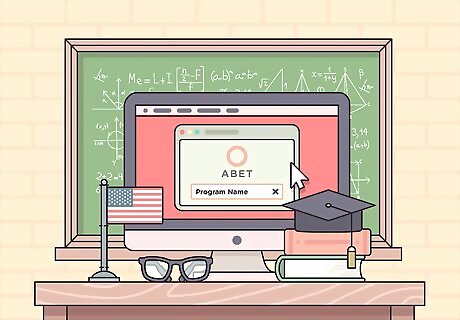
Find an ABET-certified Bachelor’s degree program. The Accreditation Board of Engineering and Technology (ABET) is the United States’ standard organization for approving programs in engineering. Make sure any program you are considering has an ABET accreditation. If not, you may not be able to find a job in nuclear engineering. Visit the ABET website and check if a program is accredited at https://amspub.abet.org/aps/name-search?searchType=institution. If you don’t know where to start, you can use the same page to explore accredited programs.
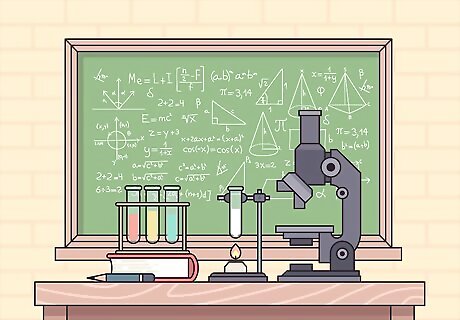
Find a college program that offers cooperative-education opportunities. Getting a job in nuclear engineering requires more than good work in the classroom. Most jobs also require hands-on laboratory and fieldwork experience. Universities help satisfy this requirement by offering cooperative-education opportunities like working in the university lab. Explore the different opportunities that each program offers for concrete work experience. Also see what internship or fieldwork opportunities each program offers. Ask if the university partners with local businesses or research labs to give you outside work experience.
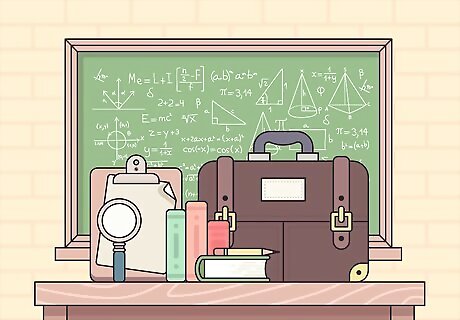
Do at least one internship during college. Experience outside your university is a critical way for you to get a job in the engineering field. Internships are the perfect way to get that experience. Many universities have formal partnerships with institutions that grant internships. Ask your department head or professors if they know of any such programs you can enroll in. If your college does not have any partnerships with local institutions, do your own investigating and find internship programs for nuclear engineering students. A place you can look for engineering internships is the US Department of Energy. Find potential internships by visiting https://www.energy.gov/jobs/careers/students-recent-graduates?_ga=2.168739046.652481995.1567723001-549455488.1567723001. Check if your university offers course credit for an internship. You may be able to avoid some required classes by doing an internship instead.
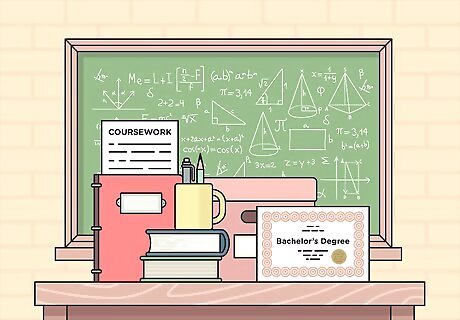
Complete the required coursework for your Bachelor’s degree. While getting outside work experience, also remember to complete your education. A nuclear engineering degree requires core classes, plus many other science and mathematics courses. Work your way through the course program to earn your Bachelor’s degree in nuclear engineering. Keep in close contact with an adviser in your department to ensure that you are meeting all the requirements and will graduate on time. Also take elective courses in your field of specialty. Developing specialized knowledge will make you a more attractive job candidate later on. Keep your GPA high. Aim for at least a 3.0. This will not only help in your job search, but is also important if you decide to go on to graduate school.
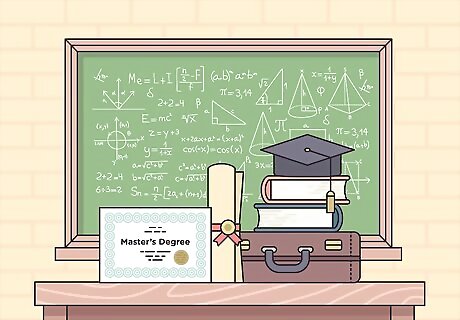
Consider getting a Master’s degree if the job you want requires it. Many engineers eventually get a Master’s degree as well. Explore the field you’re looking at entering, and see if a Master’s degree will make you a more sought-after job candidate. If you do choose to pursue a Master’s, remember to find an ABET-certified program just like you did for your undergraduate work. You may be able to get an entry-level job with only a Bachelor’s. In that case, decide if you want to pursue a Master’s now, or work in the industry first and then decide if you want a Master’s further down the road. Some universities offer a 5-year option, during which you’ll receive both a Bachelor’s and Master’s degree. See if your program has such an option.
Landing a Job
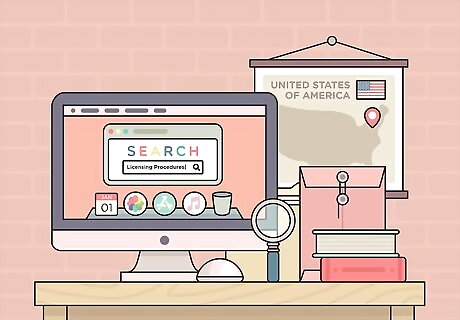
Research the licensing procedures in your state. States set their own requirements for testing and licensing nuclear engineers. After getting your degree, you may need to pass more exams and gain additional certifications. Investigate the procedures in your state and find out the additional requirements you must meet. Usually, engineering graduates have to gain Engineer in Training (EIT) or Engineering Intern (EI) status by passing the Fundamentals of Engineering Exam. The National Council of Examiners for Engineering and Surveying keeps track of all the licensing requirements in each state. Find your state requirements by visiting https://ncees.org/state-links/.
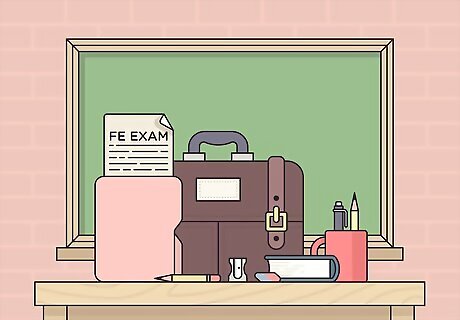
GET EIT or EI status by passing the Fundamentals of Engineering (FE) Exam. In most states, you gain EIT or EI status by taking the FE. This test measures basic competency in engineering knowledge and safety. Prepare for and pass this exam. Once you gain EIT or EI status, you can begin working most entry-level jobs as an engineer. Some of the fields on the FE exam are math, statistics, ethics, energy transfer, and safety protocol. For details and prep suggestions, visit https://ncees.org/engineering/fe/.
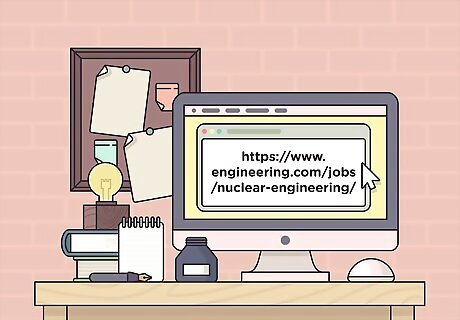
Search engineering-focused job websites. While traditional job sites like Indeed may have some jobs in your field posted, most nuclear engineering jobs will be posted on more specialized sites. Check engineering-specific websites or the job boards for professional organizations to find these positions. A standard site for many engineering graduates is https://www.engineering.com/jobs/nuclear-engineering/. You can also search for postings on the site for organizations like the American Nuclear Society. Make an account and browse job postings at http://www.ans.org/pi/.

Attend engineering-focused networking events. Some professional engineering organizations host job and career fairs. At these events, you can meet potential employers in person, tell them about your skills, and hand in your resume. Engineering-focused events like these allow you to meet with representatives in your particular field more so than general job fairs. The North American Young Generation in Nuclear sometimes hosts networking events and career fairs. Visit their website at https://naygn.org/.

Emphasize your work and internship experience in your cover letter. Many job applicants got high grades in school, but being a nuclear engineer requires more concrete experience and skills. Distinguish yourself from other applicants by explaining the work experience you received during your education. Write about your internships, lab experience, or any other tasks relevant to the job. For example, talk about how the laboratory work you did in school had the same duties as you would be doing on the job. Be ready to back up any claim you make about your background experience. If you lie about your qualifications, you’ll be found out once you start the job.

Complete your on-the-job training. Once you get a job, your new employer will probably put you through a training period. Experienced engineers will introduce you to the worksite and the necessary operations and safety procedures. This could last a few weeks or a few months, depending on the job. After this training period, you will be officially hired as an engineer. Remember that this training period is also probably a trial period. Nuclear engineering requires attention to detail and safety, and your new employer will want to make sure you’re qualified. Perform to the best of your ability during the training period and impress your new employer.
Advancing in Your Career
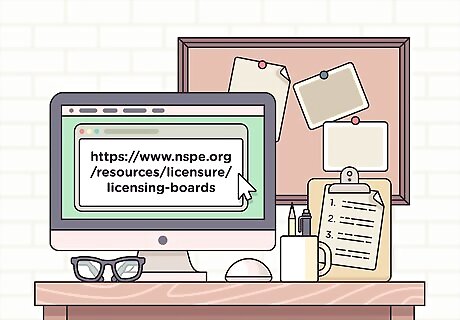
Meet licensing requirements from your state licensing board. In most states, you can begin working under the supervision of a professional engineer once you gain EIT or EI status. Some states, however, require you to renew your license or take additional exams to maintain your certification. Check with your state's licensing board and see if there are requirements for keeping your license up to date. For links to each state licensing board and their requirements, visit https://www.nspe.org/resources/licensure/licensing-boards.
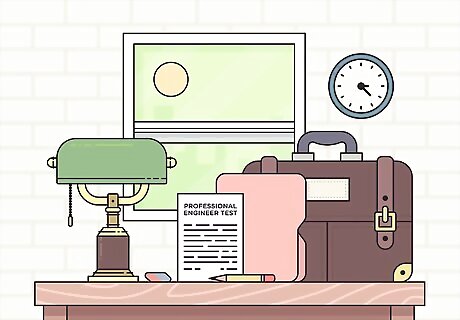
Take the Professional Engineer (PE) test after 4 years of work experience. A PE license establishes you as an experienced engineer who can work independently and supervise less experienced engineers. You become eligible to take the PE exam after 4 years of work experience under the supervision of another PE. Prepare for an pass this exam to advance in your engineering career. The PE test is an 8-hour exam with 80 questions. Topics include nuclear power systems design and analysis, regulations, safety, and technical aspects of nuclear reactions. The test is only offered once per year in October, so start preparing several months in advance so you don't have to retake the exam. The National Society of Professional Engineers has prep material at https://www.nspe.org/resources/education/exam-review-and-preparation.
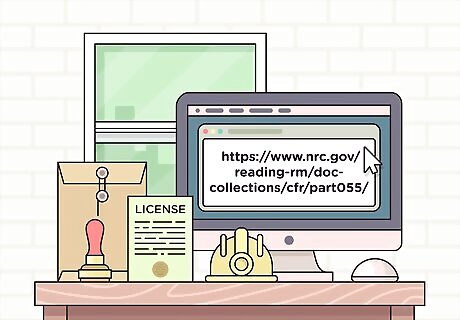
Obtain a Senior Reactor Operator license to oversee a nuclear reactor. These licenses are granted by the US Nuclear Regulatory Commission and allow you to operate a nuclear reactor. Applicants must spend 2 years training on-site at a nuclear reactor. They then must pass the Generic Fundamentals Examinations for Reactor Operators (GFE) test. After this training and testing, applicants will receive a license to operate the nuclear reactor that they were assigned to. Download the necessary application forms at https://www.nrc.gov/reading-rm/doc-collections/cfr/part055/. For details on the GFR test, visit https://www.nrc.gov/reactors/operator-licensing/generic-fundamentals-examinations.html. The license is valid for 6 years, after which you'll have to renew it.
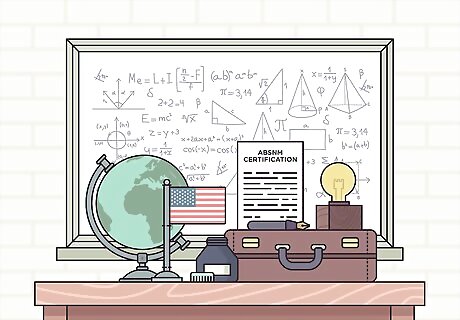
Consider gaining ABSNM certification to enter new fields. After gaining a PE license, you can work as a full nuclear engineer without further certifications. However, there are some ways you can advance your career even further and enter new fields. One way to do this is with a certification from the American Board of Science in Nuclear Medicine. The ABSNM offers certifications in nuclear physics and instrumentation; radiopharmaceutical science; radiation protection; and molecular imaging. If you are interested in any of these fields, gaining ABSNM certification will help you enter them. You will need at least a Master's degree to qualify for the ABSNM test. For more information on specific fields, visit https://www.absnm.org/examinations-and-certification.html. Exams are usually given once annually. Download the application form from https://www.absnm.org/uploads/1/1/1/6/111665583/application_for_absnm_certification.pdf.




















Comments
0 comment